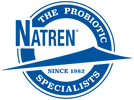Milk is a good source of calcium and protein but not all adults can tolerate milk and other dairy foods. That’s because they may have a common condition called lactose intolerance. What is lactose intolerance and why does it make it so hard to tolerate dairy foods?
Lactose is a natural sugar in milk and dairy products. Lactose is two simple sugars, glucose and galactose linked together. To break down lactose into a form that can be absorbed by intestinal cells, you need ample quantities of an enzyme called lactase. Lactase is an enzyme secreted by cells in the small intestine that splits lactose into each individual sugar.
When there’s not enough lactase to do the job, lactose can’t be completely digested or absorbed. As a result, it moves undigested into the large intestine creating a variety of gases that trigger the symptoms of lactose intolerance – bloating, diarrhea, flatulence and cramping.
Lactase deficiency is extremely common. Three out of four adults worldwide have some degree of lactose intolerance. Some people experience symptoms when they consume even small amounts of lactose while others are symptom-free unless they consume a lot of dairy. This reflects differing levels of the lactase enzyme. Needless to say, adults who experience symptoms of lactose intolerance find the bloating and flatulence to be unpleasant and embarrassing.
Lactase is also produced by the bacteria found normally in the intestine. A scientific study from Purdue University showed that increasing the amounts of daily lactose intake trained the intestinal bacteria to produce more lactase in lactose intolerant people. People who have difficulty digesting lactose may find some relief with probiotics. The beneficial bacteria, Lactobacillus and Bifidobacteria produce lactase and can assist in the splitting of lactose into digestible sugars alongside the body’s natural mechanism – technical details of those studies can be found here.
Everybody’s body is different, and what may work for one person may not work well for others, but sufferers of lactose intolerance may want to try probiotics as a way of helping the body process dairy (although if you have concerns, or have an immune deficiency disease, you should consult with your doctor first). One approach would be to try probiotic supplements yourself, and slowly introduce small, daily quantities of dairy into your diet to see if it helps. After all, the very best test is whether it works for YOU!
The post Probiotics and the Breakdown of Lactose appeared first on Natren Probiotics Blog.




0 comments